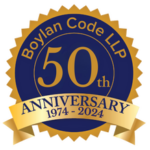With the continued popularity of social media such as Twitter and Facebook, we are now, more than ever, more acutely aware of our neighbors’ opinions.
Those opinions run the gamut from thoughts on last night’s Survivor premier, to critiques of the Buffalo Bills’ most recent loss (or, more rarely, their most recent win), to the reasons why one supports a favorite politician. Sometimes those opinions are accompanied by pleas for support on issues before one’s own local municipal board.
For example, for quite some time now my friends from the Town of Irondequoit have been posting about the Irondequoit Public Library project, many seeking to garner support for a proposed new library.
Some may wonder how effective these kinds of social media campaigns, or public support or opposition for a project in general, may be. Can one truly help his neighbor’s cause by “liking” his Facebook post challenging an application for new a big box store now before the local Town Board? How about signing your neighbor’s online petition? What about responding to a Twitter message rallying people to attend a Town Board meeting to oppose such a project? Can a crowd of Twitter “followers” convene at a Town Board meeting to stop a project?
New York courts provide some guidance related to these issues. For example, in the Matter of Bagga v. Stanco, 90 A.D.3d 919 (2d Dept. 2011), a developer applied to the Town of Oyster Bay Planning Board to build a mixed use apartment/retail building where the apartments would be located above retail businesses. A number of citizens of the Town attended the two public hearings on the project, loudly opposing it because they believed that “undesirable tenants” would be attracted to the project.
In deciding upon the project, the Planning Board purported to consider the opinion of its Engineer evaluating parking, traffic and other details related to the project. Ultimately, the Planning Board denied the project and the developer filed suit against the Town. In its review of the matter, the 2nd Dept. found that the record contradicted the Planning Board’s decision – specifically, the Court noted that according to the record the project would add only one additional vehicular trip during peak traffic hours and that the proposed parking spaces exceeded the number of spaces required by the local town code. The Court determined that instead of basing its determination on the facts that formed the record, the Planning Board instead improperly grounded its determination solely on local “generalized community opposition” to the project. As a result, the Court annulled the Planning Board’s denial of the project.
Similarly, in the Matter of Young Dev., Inc. v. the Town of Seneca, 91 A.D.3d 1350 (4th Dept. 2012), local residents opposed a project before the Town Board seeking a special use permit to construct a residential development comprising assisted living for seniors . The Town Board denied the proposed development on the grounds that the Town’s sewer system would have insufficient capacity to handle the project. Upon review, the Court found that the applicant had submitted documentation providing that not only could the Town’s sewer system handle the project, but if an issue were to arise, the developer had offered to remediate any issues. The Court therefore concluded that the Town Board had denied the special use permit wholly because of general community opposition to the project, rather than based upon facts on the record. As a result, the Court annulled the Town Board’s denial.
The courts therefore tell us that if a local board grounds its decision purely on the pulse of the local residents, such a decision will be denied should it be challenged, particularly where the local board purports to base its decision on facts that aren’t supported by the record (i.e., where, as in the Matter of Young Dev., Inc., the board determined that there was not enough sewer capacity, but a sewer study showed more than enough sewer capacity).
Local governments can be put under tremendous pressure, particularly with regard to contentious projects, given the range of forums available to the public today to voice its opinion. Not only are the traditional venues still alive and well (lawn signs, public outcry at a hearing, opinion pieces in local newspapers, etc.), but now public opposition or support can spread like wildfire on the internet through local blogs, Facebook, Twitter and the like. There can be a temptation to react quickly to relieve the pressure by, for example, aligning with the public and quickly shutting down a project, regardless of the reason. However, this would be a disservice to all involved – the local board would risk having its decision overturned, the public would have failed to voice the basis for its reasoning and the developer would have been denied the opportunity to have legitimate consideration of its project.
However, this does not necessarily mean that your Facebook campaign or tweets are in vain. While local municipal boards are not permitted to deny an application solely because the community doesn’t like the project, a municipal board is indeed permitted to deny an application based upon fact and reason that may be brought into the limelight by the community. Where community opposition brings about facts and reasons why a project should be denied, a municipal board can review those facts and reasons and, should it agree, adopt those facts and reasons as its own and make its determination accordingly.
Therefore, instead of rallying your neighbors to attend a public hearing to oppose the construction of a new pizzeria simply because you don’t like pizza, instead, base your opposition upon facts and reasonability that could be adopted by the board members and upheld in court – i.e., that the pizzeria would create additional traffic at an already dangerous intersection. By supporting your concerns with facts and reasons, you provide valuable ammunition for the local board to support its decision should it agree with you.
Donald A. Young is an Associate at Boylan Code LLP, focusing his practice on municipal and land use law, general litigation, and real estate matters. For more information, contact Don at (585) 232-5300 or dyoung@boylancode.com.


